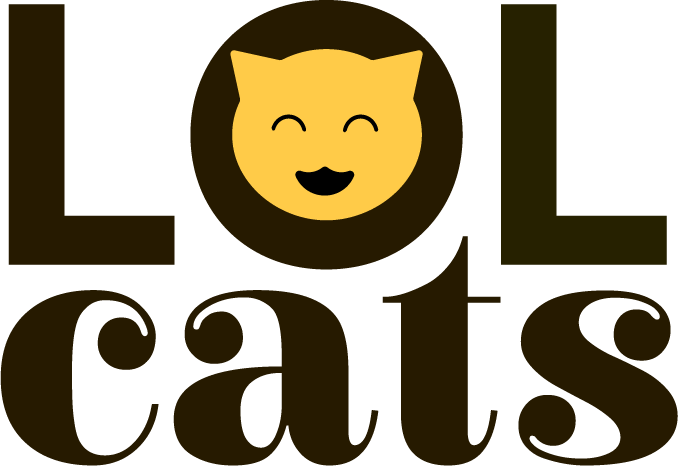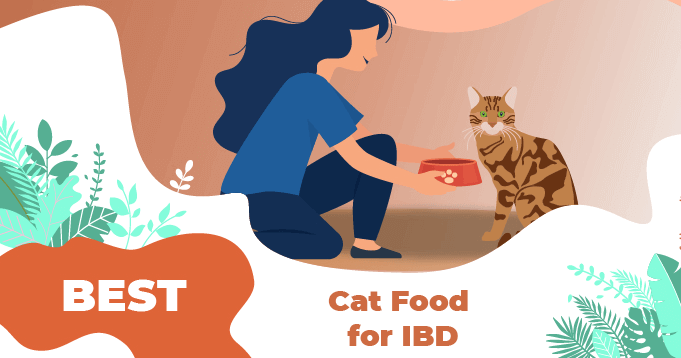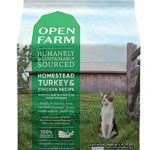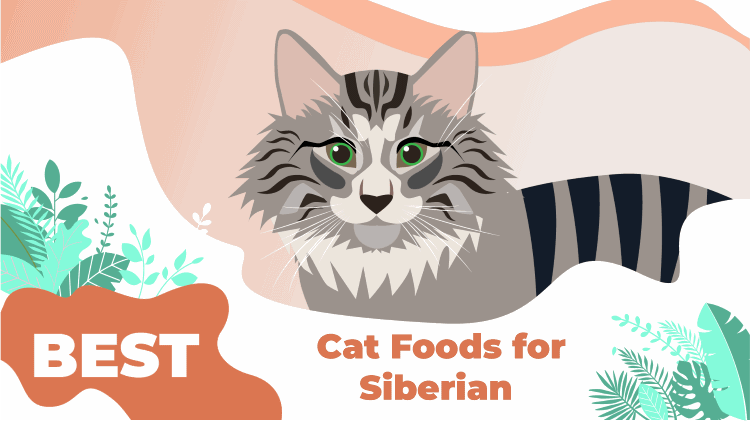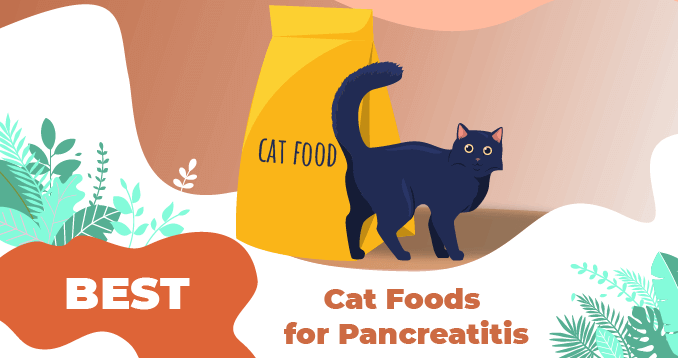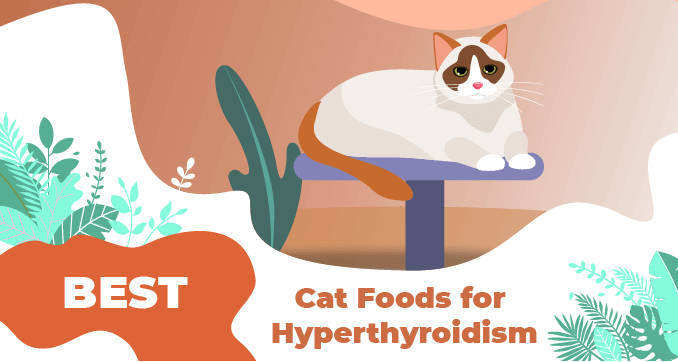The 7 Best Cat Foods For IBD
This page contains affiliate links. We may earn money or products from the companies mentioned in this post through our independently chosen links, which earn us a commission.
It’s not easy living with a cat that has irritable bowel disease (IBD). Your cat may vomit frequently, have bouts of diarrhea, a rumbling stomach, and gas can be a problem.
Even if he seems to eat well, he may lose weight. He can also be depressed. Some of these symptoms are found with many feline health problems so it’s not always easy to tell what your cat’s problem might be.
Compare Best Cat Foods For IBD
|
Overall Best
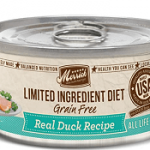
1. Merrick Limited Ingredient Diet Grain-Free Real Duck Pate Recipe |
Premium Choice
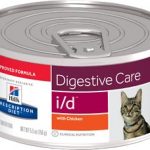
3. Hill's Prescription Diet i/d Digestive Care with Chicken Canned Cat Food |
Best Prescription
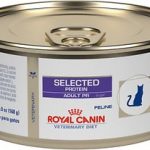
4. Royal Canin Veterinary Diet Selected Protein Adult PR Canned Cat Food |
Best For Sensitive Stomach
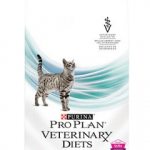
5. Purina Pro Plan Veterinary Diets EN Gastroenteric Formula Dry Cat Food |
Most Popular
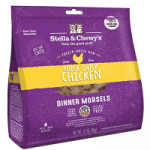
6. Stella & Chewy's Chick Chick Chicken Dinner Morsels Freeze-Dried Raw Cat Food |
Best Grain Free
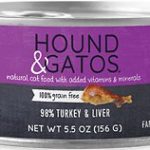
7. Hound & Gatos 98% Turkey & Liver Formula Grain-Free Canned Cat Food |
|
|
Protein
8% Min |
Protein
37% Min |
Protein
7.5% Min |
Protein
8.5% Min |
Protein
50% Min |
Protein
45% Min |
Protein
10% Min |
|
Fat
4% Min |
Fat
18% Min |
Fat
4% Min |
Fat
4.5% Min |
Fat
16% Min |
Fat
25% Min |
Fat
8.5% Min |
|
Fiber
1.4% Max |
Fiber
3% Max |
Fiber
1% Max |
Fiber
1% Max |
Fiber
3% Max |
Fiber
5% Max |
Fiber
1% Max |
|
Moisture
78% Max |
Moisture
10% Max |
Moisture
78% Max |
Moisture
78% Max |
Moisture
12% Max |
Moisture
5% Max |
Moisture
78% Max |
|
Caloric Content
131 kcal/5 oz can |
Caloric Content
3840 kcal me/kg, 470 kcal me/cup |
Caloric Content
161 kcal/5.5 oz can |
Caloric Content
167 kcal/5.9 oz can |
Caloric Content
528 kcal/cup |
Caloric Content
182 kcal/cup |
Caloric Content
1,222 Kcal/kg |
|
Food Type
|
Food Type
Fresh |
Food Type
|
Food Type
|
Food Type
|
Food Type
|
Food Type
|
For example, IBD can be easily mistaken for a food allergy or food sensitivity and in some cases, there is an allergy component to the illness.
Identifying irritable bowel disease and finding the best cat food for IBD usually takes a lot of patience.
Cats that have irritable bowel disease (IBD) have a gastrointestinal (GI) tract that is chronically irritated and inflamed. The inflammation means that their GI tract is unable to properly digest and absorb food.
IBD can appear in any cat but it occurs most often in cats that are middle-aged and older cats.
If your cat has IBD, one of the ways your veterinarian will try to manage it is by changing his diet. You will need to find the best cat food for IBD – something that can take some work.
Dietary Management And Food Trials With IBD Cats
Your vet may recommend a food trial for your cat if s/he is trying to determine if your cat has a food allergy instead of IBD. Your vet could also recommend a food trial if your cat has already been diagnosed with IBD.
This is because food allergens can play a role in IBD. In either case, the best cat food for IBD, at least at the diagnostic stage, is often a hypoallergenic food.
Hypoallergenic cat foods contain protein and carbs that your cat hasn’t previously eaten. These proteins are usually meats such as venison, rabbit, or duck.
Strictly speaking, a hypoallergenic cat food should contain one meat protein and one kind of carbohydrate but it’s not always easy to find a cat food that works for your cat that meets that criteria. It’s best to follow your vet’s advice and start with a food that s/he recommends.
Editor’s note
Remember that when you are doing a food trial with your cat it’s vital that your cat doesn’t eat other sources of food that could ruin the trial. That means your cat can’t have table scraps, medications, or treats that contain non-approved ingredients.
A food trial will normally take up to 12 weeks unless you can tell sooner that your cat is having a negative reaction to the protein or carbohydrate in a food.
Once the food trial is over, if your cat doesn’t need to eat a prescription or veterinary diet, you may be able to find a limited ingredient diet (LID) that meets the requirements for a hypoallergenic cat food.
An LID commercial cat food can be a good choice for cats with IBD if you are careful about the ingredients.
If your cat’s IBD symptoms don’t get better while eating a hypoallergenic diet, she could do well eating a food that is easy to digest, high in fiber, and low in fat.
Keep in mind that any time you change cat foods, even when you make the change gradually, it can take a while for your cat to adjust.
It may take several weeks or longer before you see an improvement in your cat’s IBD.
IBD can be very idiosyncratic, especially if any food allergies are involved, so be patient while you and your vet try to figure out the best cat food for your cat’s IBD.
What To Look For In The Best Cat Food For Ibd?
According to veterinary sources, hypoallergenic cat foods are normally started as part of the treatment plan for cats diagnosed with IBD.
These foods usually feature venison, rabbit, duck, lamb, or chicken as the lone meat protein. They should also have one kind of carbohydrate.
A slow change can later be made to a commercial diet that is low in additives. With the change, owners can attempt to feed a food that uses chicken or lamb as the primary ingredient.
This may not always work but most companies make foods with alternate meat proteins if your cat cannot eat the chicken or lamb.
In general, it’s a good idea to look for foods that have fewer ingredients, such as limited ingredient diets (LID), on the theory that foods with fewer ingredients have less chance of irritating your cat’s GI tract.
Cat foods that are easy to digest, with lower fat and lots of fiber are also recommended for cats with IBD.
Check with your veterinarian before adding any supplements to your cat’s diet that might cause irritation, including vitamins, minerals, and pro- or prebiotics.
With cats that have this kind of sensitive GI tract, anything that you add to their diet, even if it sounds like something healthy, might be an irritant.
Best Cat Food For IBD Reviewed
Merrick Limited Ingredient Diet Grain-Free Real Duck Pate Recipe
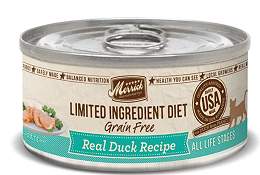
Product Info
- Protein: 8% Min
- Fat: 4% Min
- Fiber: 1.4% Max
- Moisture: 78% Max
- Caloric Content: 131 kcal/5 oz can
- Made from a single animal source protein
- Beneficial nutrients like chelated minerals and probiotics
- Made in the USA
- You’ll need a prescription
It also contains pea protein, natural flavor, alfalfa meal, guar gum, and flaxseed oil so these foods aren’t perfect but many cats could eat them without a problem. The remainder of the ingredients are added vitamins and minerals. It has 8 percent crude protein, 7 percent crude fat, 1.4 percent crude fiber, and 78 percent moisture. All of the Merrick LID recipes feature a single source of animal protein which is why we considered Merrick as one of the best cat food for inflammatory bowel disease.
Open Farm Homestead Turkey & Chicken Dry Food
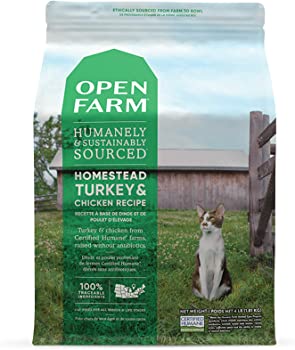
Product Info
- Protein: 37% Min
- Fat: 18% Min
- Fiber: 3% Max
- Moisture: 10% Max
- Caloric Content: 3840 kcal me/kg, 470 kcal me/cup
- Food Type: Fresh
- 100% free from fillers and artificial flavors
- Made from premium ingredients
- Rich in protein and fat, low in carbohydrates
- Cost is above market average
The remainder of the ingredients are added vitamins and minerals. We would consider this food to be a limited ingredient diet and one that your cat would devour.
Open Farm Homestead Turkey & Chicken Dry Food has 37 percent crude protein, 18 percent crude fat, 3 percent crude fiber, and 10 percent moisture. So, it has lots of meat protein that cats need and love.
Hill's Prescription Diet i/d Digestive Care with Chicken Canned Cat Food
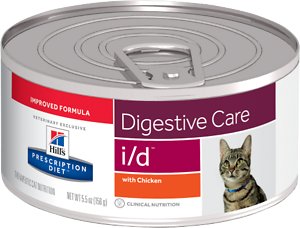
Product Info
- Protein: 7.5% Min
- Fat: 4% Min
- Fiber: 1% Max
- Moisture: 78% Max
- Caloric Content: 161 kcal/5.5 oz can
- Formulated by nutritionists and veterinarians
- Promotes healthy digestion
- Often recommended by vets
- Not palatable for some cats
This food is often prescribed for cats that need help with digestive problems, including cats with IBD. This Hill’s Prescription Diet is highly digestible with a balance of soluble and insoluble natural fibers.
It supports good bowel health and the growth of beneficial bacteria in your cat’s gut. And, it replaces lost nutrients and ensures easy nutrient absorption. This food is a pate. Prescription.
Royal Canin Veterinary Diet Selected Protein Adult PR Canned Cat Food
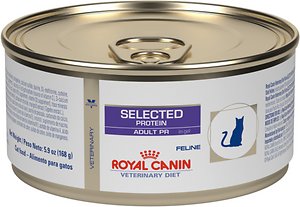
Product Info
- Protein: 8.5% Min
- Fat: 4.5% Min
- Fiber: 1% Max
- Moisture: 78% Max
- Caloric Content: 167 kcal/5.9 oz can
- Contains vitamins and minerals
- Soft gel texture
- Often recommended by vets
- You’ll need a prescription
It has few other ingredients, besides vitamins and minerals, which reduces the chance that your cat will have a negative response to something in the food.
This canned food has 8.5 percent crude protein, 4.5 percent crude fat, and 1 percent crude fiber, with 78 percent moisture. The food is a loaf in gel texture. Also comes in other Selected Protein flavors and in kibble. Prescription.
Purina Pro Plan Veterinary Diets EN Gastroenteric Formula Dry Cat Food
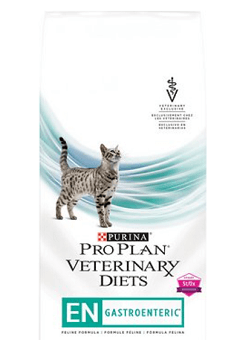
Product Info
- Protein: 50% Min
- Fat: 16% Min
- Fiber: 3% Max
- Moisture: 12% Max
- Caloric Content: 528 kcal/cup
- Especially formulated to help manage your cat’s food sensitivity
- Formulated and optimized for IBD
- Made in the US
- You’ll need a prescription
The canned food has 9.5 percent crude protein, 4 percent crude fat, 2 percent crude fiber, and 78 percent moisture. Also available as a dry cat food Prescription.
Stella & Chewy's Chick Chick Chicken Dinner Morsels Freeze-Dried Raw Cat Food
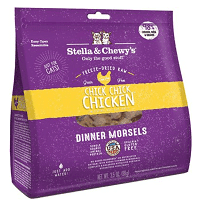
Product Info
- Protein: 45% Min
- Fat: 25% Min
- Fiber: 5% Max
- Moisture: 5% Max
- Caloric Content: 182 kcal/cup
- High in protein
- No grains, fillers, gluten, added hormones or antibiotics
- Minimally processed
- Expensive
You can choose from two flavors for your cat–the Chick, Chick, Chicken Dinner and the Yummy Lickin’ Salmon & Chicken Dinner. The Chick, Chick, Chicken Dinner is made from real dehydrated chicken which is a nutritionally complete treat for your Exotic Shorthair.
The Yummy Lickin’ Salmon & Chicken Dinner is made from wild-caught salmon and cage-free chicken with optimal quality and designed to satisfy your cat’s palatability.
Hound & Gatos 98% Turkey & Liver Formula Grain-Free Canned Cat Food
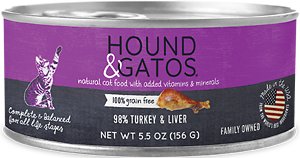
Product Info
- Protein: 10% Min
- Fat: 8.5% Min
- Fiber: 1% Max
- Moisture: 78% Max
- Caloric Content: 1,222 Kcal/kg
It contains a limited number of primary ingredients with beneficial supplements to ensure complete and balanced nutrition.
This recipe contains no corn, wheat, or soy and is completely free from by-products of any kinds. It is naturally thickened with agar-agar and doesn’t contain guar gum or carrageenan like many canned pet foods. Plus, it is considered complete and balanced for adult cats.
Conclusion
If you have a cat with IBD, we know that it’s not easy finding diets that work. It can take time to find a food that’s suitable; that your cat likes; and that he’ll eat more than once or twice.
We hope that the foods mentioned here provide you with some options. There’s more than one kind of prescription diet.
A fresh food diet could work for some cats. And a limited ingredient diet can be a good choice for many cats. Good luck with your cat’s diet.
